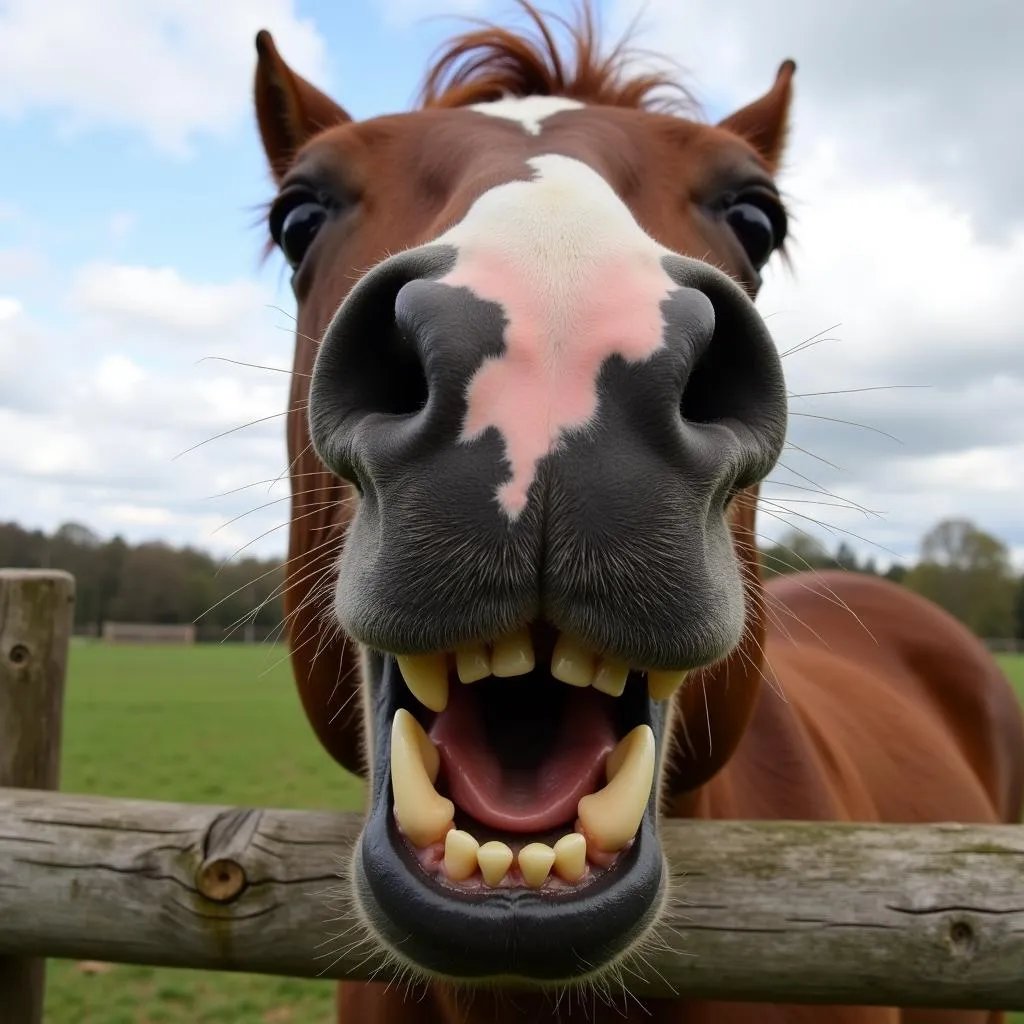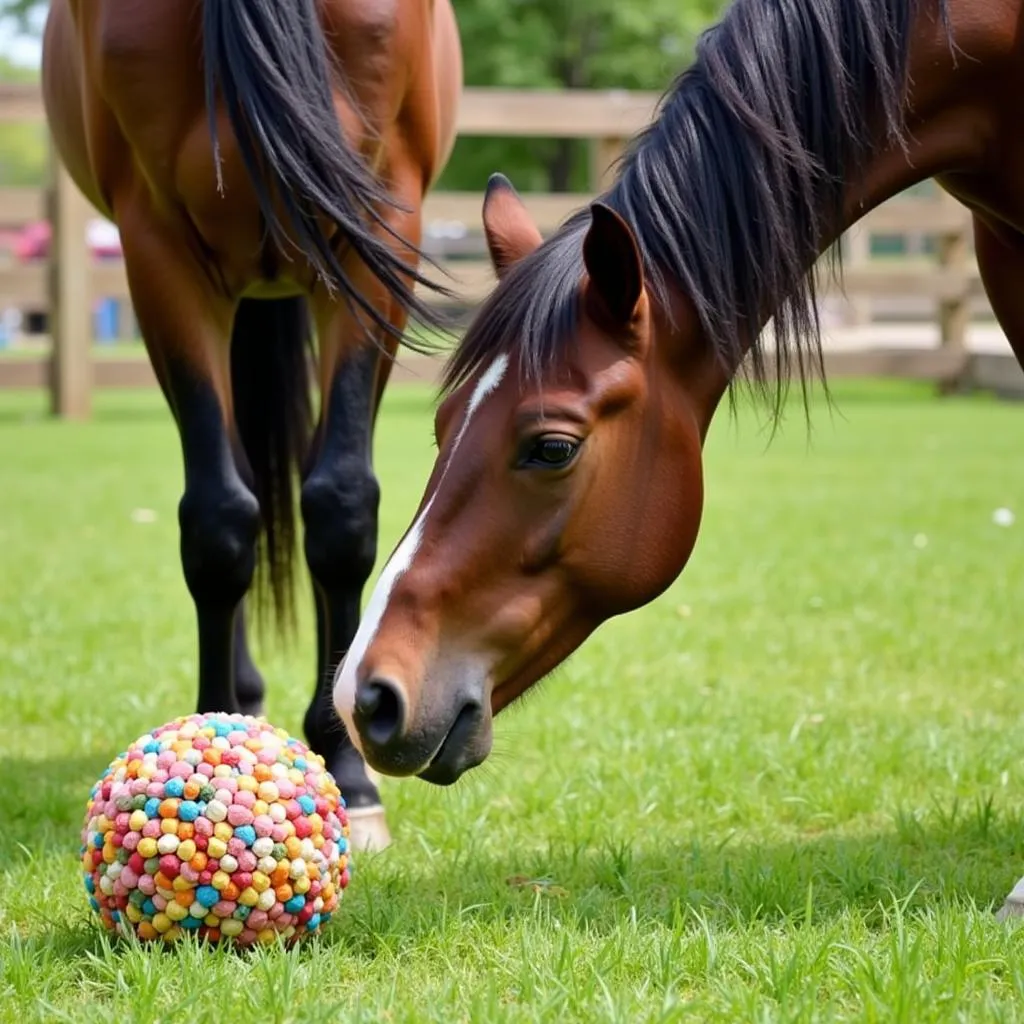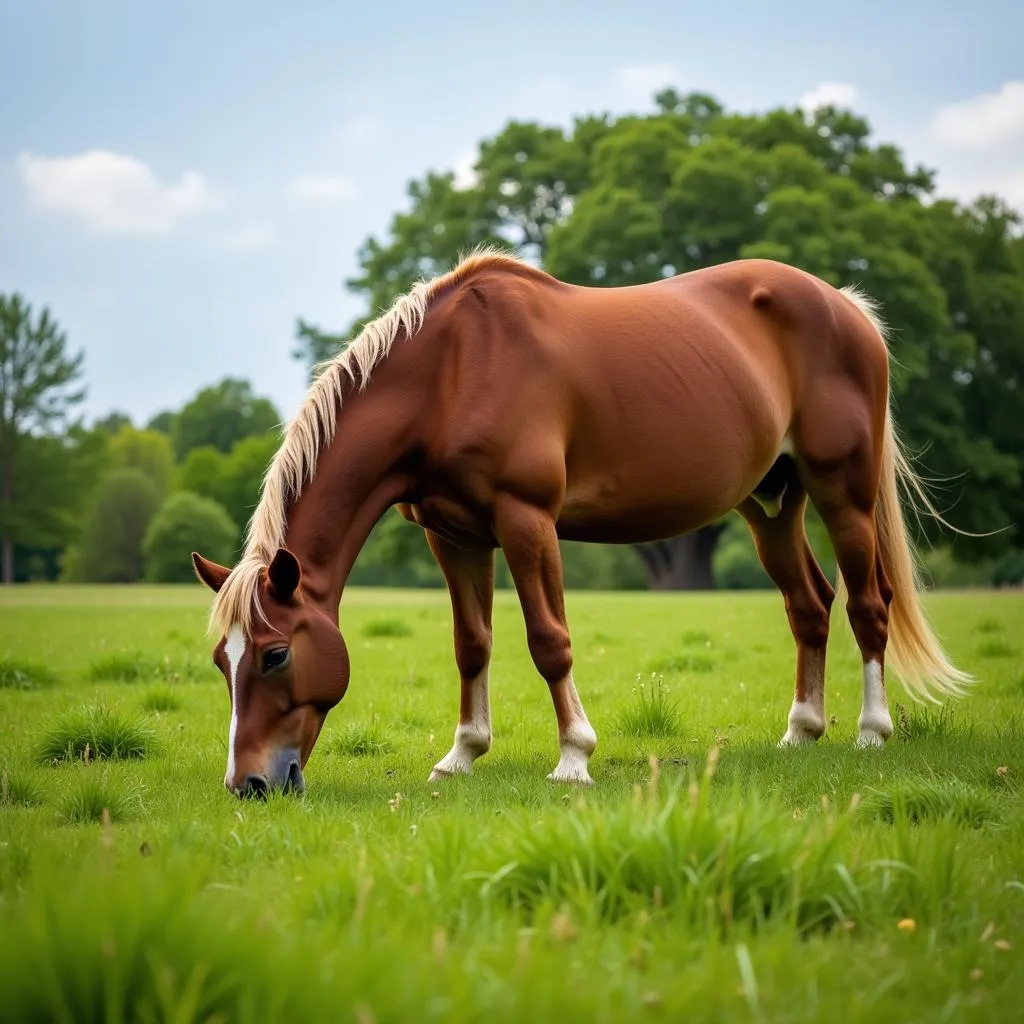Horse chewing can be a frustrating and expensive problem for horse owners. Whether it’s fences, stalls, or even trees, a horse that has developed a chewing habit can cause significant damage. This behavior, often referred to as “cribbing,” isn’t just about satisfying a craving; it often signals underlying issues that need to be addressed.
Why Do Horses Chew?
Understanding why your horse chews is the first step to effectively managing and hopefully stopping the behavior. Here are some common culprits:
-
Boredom and Lack of Stimulation: Horses are naturally curious and active animals. When confined to stalls or small paddocks without enough mental and physical stimulation, they can develop boredom-based vices, including chewing.
-
Dietary Deficiencies: A diet lacking in essential nutrients, particularly fiber, can lead to chewing. Horses have a natural instinct to graze for long periods, and when this need isn’t met, they may try to satisfy it by chewing on anything within reach.
-
Stress and Anxiety: Just like humans, horses can experience stress and anxiety. Changes in routine, social isolation, or an uncomfortable environment can trigger these feelings, leading to destructive coping mechanisms like chewing.
 Horse Chewing on a Wooden Fence
Horse Chewing on a Wooden Fence
Effective Strategies for Stopping Horse Chewing
Once you’ve identified the potential reasons behind your horse’s chewing, you can implement strategies to curb this behavior:
1. Environmental Enrichment:
-
Increase Turnout Time: Aim for a minimum of several hours of turnout daily in a spacious pasture where your horse can roam, graze, and socialize with other horses.
-
Provide Toys and Enrichment Activities: Introduce horse-safe toys like treat balls, salt licks, or hanging feeders to keep your horse entertained and mentally stimulated.
-
Consider a Companion: If possible, provide your horse with a pasture mate for companionship and to reduce boredom and stress.
 Horse Interacting with an Enrichment Toy
Horse Interacting with an Enrichment Toy
2. Dietary Adjustments:
-
Increase Forage Intake: Ensure your horse has access to plenty of high-quality hay or pasture grass. This provides essential fiber, keeps them occupied, and satisfies their natural grazing instincts.
-
Evaluate and Adjust Feed: Consult with your veterinarian or an equine nutritionist to analyze your horse’s current diet and determine if any nutritional deficiencies might be contributing to the chewing.
3. Addressing Stress and Anxiety:
-
Establish a Consistent Routine: Horses thrive on routine. Maintain consistent feeding times, turnout schedules, and exercise regimens to minimize stress.
-
Create a Calm and Comfortable Environment: Ensure your horse’s stall is well-ventilated, spacious, and free from any hazards or stressors.
-
Consider Calming Supplements: In consultation with your vet, explore calming supplements containing ingredients like magnesium or chamomile, which may help reduce anxiety.
 Horse Grazing Contentedly in a Pasture
Horse Grazing Contentedly in a Pasture
When to Seek Professional Help
If your horse’s chewing persists despite implementing these strategies, it’s essential to consult with your veterinarian and a qualified equine behaviorist. They can help rule out any underlying medical conditions and develop a tailored behavior modification plan.
Conclusion
Successfully addressing horse chewing requires a multifaceted approach that considers environmental factors, dietary needs, and your horse’s overall well-being. By making necessary changes and providing a stimulating and enriching environment, you can help your horse break free from this destructive habit and live a healthier, happier life.